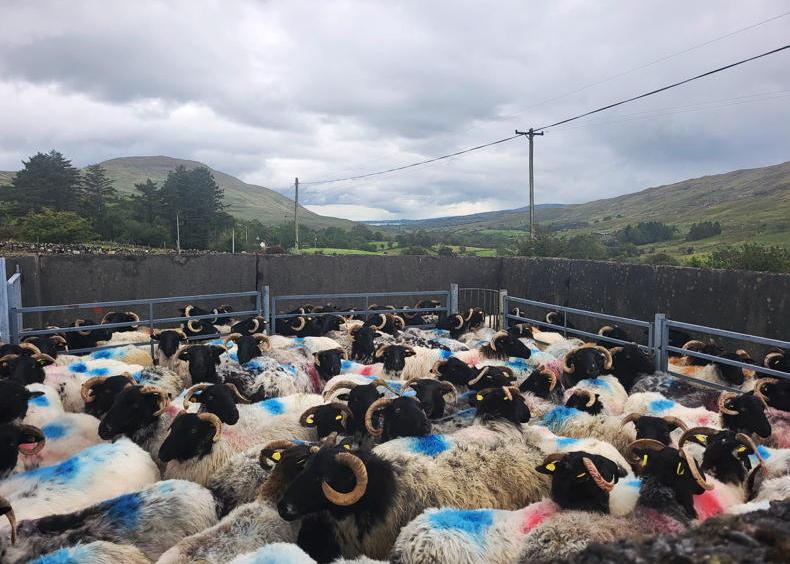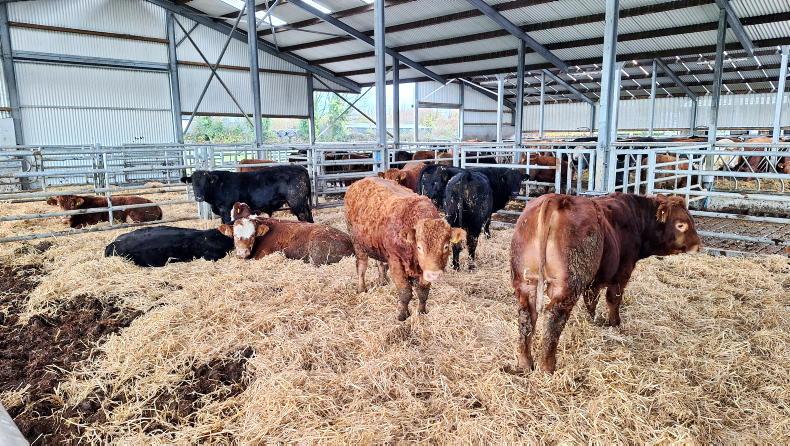A new international project creating knowledge and infrastructure to incorporate genetic merit for low environmental impact traits into national breeding schemes for sheep is being led by Teagasc.
The project will be done with the support of Sheep Ireland and has received funding from the Department of Agriculture under the green ERAHUB funding programme.
Key sheep-breeding nations, including New Zealand, Scotland, Norway, France and Uruguay, are joint partners on the project.
It aims to provide a platform for national and global comparison of methane and carbon dioxide emissions for the purpose of selective breeding for lower-emitting animals.
Building on existing and previous project collaborations, the project uses portable accumulation chambers across all countries for individual animal methane measurements.
In Ireland, performance-recorded animals from the research flock at Teagasc Athenry and the Sheep Ireland Central Progeny Test Centre flocks are participating in the research.
Methane reduction
The ‘Reducing sheep methane emissions: sustainability in practice via new breeding goals’ project is led by Teagasc’s Dr Fiona McGovern.
Crucial to the project is understanding the impacts of reducing greenhouse gas emissions (GHG) on other animal characteristics, such as growth, feed intake and efficiency - and quantifying these effects.
The knowledge generated will provide a comprehensive list of recommendations for breeding programmes to be determined in tandem with the economic implications of selecting for low methane sheep.
In Ireland and other countries, research has shown that genetic improvement can be used as a means to meet policy targets for lower GHG emissions.
A spokesperson for Teagasc said methane measurement using the portable accumulation chambers is well established at the State agency.
“GreenFeed technology for measuring methane is now in its early stages. However, focusing solely on methane reduction could undermine profit traits, so balancing its economic value within a multi-trait breeding programme is necessary.”
Read more
Positive indications for beef and sheep incomes
Sheep Management: sheep dip disposal, silage quality and drafting lambs
Sheep farmers encouraged to fill out survey on labour
Change of behaviour required on sheep flock health
A new international project creating knowledge and infrastructure to incorporate genetic merit for low environmental impact traits into national breeding schemes for sheep is being led by Teagasc.
The project will be done with the support of Sheep Ireland and has received funding from the Department of Agriculture under the green ERAHUB funding programme.
Key sheep-breeding nations, including New Zealand, Scotland, Norway, France and Uruguay, are joint partners on the project.
It aims to provide a platform for national and global comparison of methane and carbon dioxide emissions for the purpose of selective breeding for lower-emitting animals.
Building on existing and previous project collaborations, the project uses portable accumulation chambers across all countries for individual animal methane measurements.
In Ireland, performance-recorded animals from the research flock at Teagasc Athenry and the Sheep Ireland Central Progeny Test Centre flocks are participating in the research.
Methane reduction
The ‘Reducing sheep methane emissions: sustainability in practice via new breeding goals’ project is led by Teagasc’s Dr Fiona McGovern.
Crucial to the project is understanding the impacts of reducing greenhouse gas emissions (GHG) on other animal characteristics, such as growth, feed intake and efficiency - and quantifying these effects.
The knowledge generated will provide a comprehensive list of recommendations for breeding programmes to be determined in tandem with the economic implications of selecting for low methane sheep.
In Ireland and other countries, research has shown that genetic improvement can be used as a means to meet policy targets for lower GHG emissions.
A spokesperson for Teagasc said methane measurement using the portable accumulation chambers is well established at the State agency.
“GreenFeed technology for measuring methane is now in its early stages. However, focusing solely on methane reduction could undermine profit traits, so balancing its economic value within a multi-trait breeding programme is necessary.”
Read more
Positive indications for beef and sheep incomes
Sheep Management: sheep dip disposal, silage quality and drafting lambs
Sheep farmers encouraged to fill out survey on labour
Change of behaviour required on sheep flock health









SHARING OPTIONS